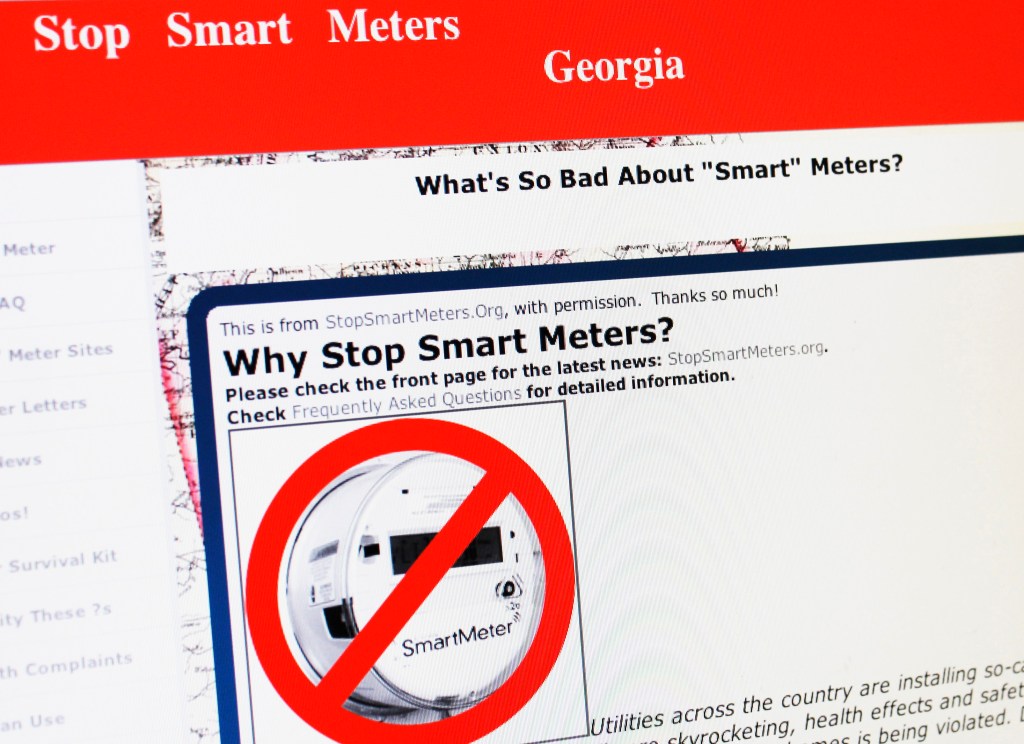Smart Meters: Fact or Fiction?
Published 2:00 pm Sunday, July 15, 2012

- Various websites have popped up that oppose the Smart Meter.
The installation of Smart Meters by Georgia Power has sparked concern throughout the state.
Trending
Smart Meters are state-of-the-art, automated electronic meters that report energy consumption remotely to a monitoring utility.
“Smart Meters are more efficient. They are much more accurate than mechanical meters,” said Lynn Wallace with Georgia Power media relations.
Georgia Power began installing Smart Meters in 2007.
“It’s been going on for some time now,” said Wallace.
Despite transitioning the device into their operation for five years now, many local South Georgia customers still have numerous concerns and reservations about the Smart Meter.
Homeowners complain that smart meters may start fires, cause health issues, flicker lights on and off and invade privacy through monitoring the devices one uses in their home. However, it turns out that several of the concerns that people have concerning Smart Meters are nothing more than myths that have been perpetuated through the rumor mill.
Trending
“They were tested extensively before they were ever put into the first person’s home,” said Wallace.
According to Wallace, there were several reasons why Georgia Power made the switch to Smart Meters.
“There were times when the meter reader couldn’t access the meter because of a dog or fence so they had to estimate,” said Wallace.
Now with Smart Meters, there are no more meter readers as the meters can be read remotely with pinpoint accuracy. Wallace stated that aside from accuracy, the Smart Meters allow Georgia Power to be more environmentally responsible because now meter readers aren’t having to drive around to check meters and emit fumes from their cars into the air.
“There are so many benefits to having a smart meter on your home,” said Wallace.
Addressing the concern that eliminating meter readers ultimately eliminated jobs, Wallace stated that no employees were let go.
“We didn’t have to lay people off,” said Wallace.
Employees were either given a retirement option or were moved to different jobs within the company.
While accuracy and efficiency haven’t been widely disputed by those who object to Smart Meters, there are concerns regarding a private company monitoring a home that has a Smart Meter device.
“They don’t monitor anything inside the house, they just measure electricity,” said Wallace. “We respect customer privacy . . . that is an extremely high priority for Georgia Power.”
According to Wallace, Smart Meters are not able to distinguish one electronic device from another.
“All that a Smart Meter actually does . . . is they measure the total amount of energy people use,” said Wallace.
Wallace stated that doing so would be considered surveillance, and Smart Meters are not a surveillance device.
“It can’t identify individual appliances,” said Wallace.
In regard to health concerns, Wallace stated radio frequencies transmitted from a Smart Meter are equal to the emission from a garage opener and much less than emission from a cell phone. The Smart Meter actually only transmits data a total of one second per day. In addition, the FCC and Public Service Commission have approved the company’s plan to switch over all meters to smart meters.
“Any claims that these are detrimental to health are unfounded,” said Wallace.
Some citizens were also concerned that the Smart Meters would cause electrical problems.
Wallace stated that in 97-98 percent of all Smart Meters, there was no ability for electricity to be turned on and off. However, in 2-3 percent of Smart Meters, there is an ability to turn electricity on and off remotely.
“These are locations where accounts are being connected and disconnected repeatedly,” said Wallace. “For that 2 to 3 percent, that’s something we initiated.”
Currently, almost all Georgia Power customers in the Valdosta metro area have Smart Meters installed on their residences and businesses. State wide, Smart Meters will be 100 percent installed by the end of July. Valdosta was one of the last areas to have the device transitioned.
Aside from electrical and health concerns, a handful of citizens were outraged at not having the option to refuse the Smart Meter.
“If they want electricity they have to have a Smart Meter on their home,” said Wallace.
During the last legislative session, a bill was introduced that would have allowed Georgia Power customers to opt out of the installation of smart meters. It passed the State Senate but was stalled in the House of Representatives.
“There is no opt out option with the Georgia Power Smart Meter,” said Wallace.
Additionally, Wallace stated that each and every Georgia Power customer was notified with a letter, a bill insert and a phone call.
“We used numerous ways,” said Wallace.
Currently, there are 2.4 million Smart Meters that have been installed by Metadigm across the state. According to Wallace, there are about 150 to 200 Georgia Power customers in the area that are still refusing the Smart Meter.
“We’re trying to work with those customers to explain the benefits,” said Wallace.
More information about Georgia Power Smart Meters can be found at http://www.georgiapower.com.
For more on this story and other local news, subscribe to The Valdosta Daily Times e-Edition, or our print edition.


